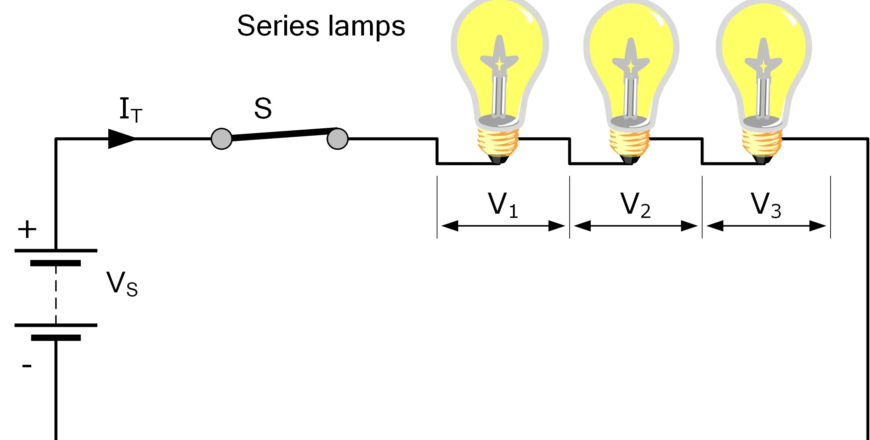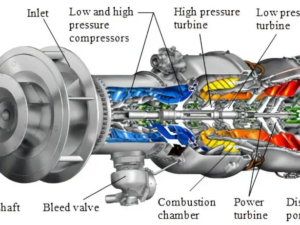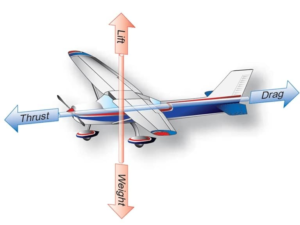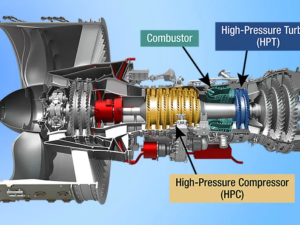Electrical Fundamentals
- Description
- Announcement
- Reviews

Module Title: Electrical Fundamentals
Module Description:
This module provides a comprehensive introduction to the fundamental principles of electricity and magnetism, which are the foundation of all electrical and electronic systems. Students will explore key concepts such as electric charge, current, voltage, and resistance, and learn how these elements interact in both direct current (DC) and alternating current (AC) circuits. The module covers essential topics like Ohm’s Law, Kirchhoff’s Laws, and the behavior of resistors, capacitors, and inductors in circuits.
Through a blend of theoretical study and hands-on laboratory work, students will gain practical experience in constructing, analyzing, and troubleshooting basic electrical circuits. They will also develop skills in using essential tools such as multimeters, oscilloscopes, and power supplies. Emphasis is placed on understanding the safe and effective use of electrical equipment, including grounding and protection mechanisms.
Upon completion, students will have a solid grounding in electrical theory and practical skills, preparing them for more advanced studies in electrical engineering, electronics, or related fields.
Learning Outcomes:
By the end of this module, students will be able to:
- Understand and apply the basic principles of electric charge, current, voltage, and resistance.
- Analyze and design simple DC and AC circuits using fundamental laws and theorems.
- Safely construct and test electrical circuits using standard laboratory equipment.
- Calculate and measure electrical power and energy in various types of circuits.
- Recognize and implement proper safety procedures when working with electrical systems.
What you will learn under this course.
- Electron Theory
- Static Electricity and Conduction
- Electrical Terminology
- Generation of Electricity
- DC Sources of Electricity
- DC Circuits
- Resistance / Resistor
- Power
- Capacitance / Capacitor
- Magnetism
- Inductance / Inductor
- DC Motor / Generator Theory
- AC Theory
- Resistive (R), Capacitive (C) and Inductive (L) Circuits
- Transformers
- Filters
- AC Generators
- AC Motors
What is the target audience?
-
Undergraduate Students:
- Engineering Students: Those pursuing degrees in electrical, electronics, mechanical, or mechatronics engineering who need a foundational understanding of electrical principles.
- Computer Science and IT Students: Individuals who require basic electrical knowledge to understand hardware, embedded systems, or network infrastructure.
- Physics and Applied Sciences Students: Students needing to grasp the electrical principles that underpin their broader scientific studies.
-
Vocational and Technical Education Students:
- Electricians and Technicians in Training: Individuals enrolled in technical programs focused on electrical installation, maintenance, or repair.
- Renewable Energy Students: Those pursuing studies in renewable energy systems who need a strong grasp of electrical fundamentals to work with solar, wind, and other renewable technologies.
-
Professionals Seeking Skill Development:
- Engineers from Non-Electrical Disciplines: Professionals in mechanical, civil, or chemical engineering fields looking to broaden their expertise with essential electrical knowledge.
- Maintenance and Facilities Managers: Those responsible for the upkeep of industrial or commercial facilities who need to understand electrical systems for effective management and troubleshooting.
-
Hobbyists and Enthusiasts:
- DIY Electronics Hobbyists: Individuals with an interest in building or repairing electronic devices who need to understand basic electrical concepts and safety practices.
- Makers and Innovators: Those involved in the maker community or DIY projects that involve electrical circuits, automation, or robotics.
-
Pre-university Students:
- High School Graduates: Recent graduates preparing for engineering or technical degree programs who want to get a head start on electrical concepts.
Types of Programmes
- Evening and weekend
- Block release
- Pre-employment
- Special requests from formal and informal sectors
- Short courses for industry/commerce
Coursework - Project support for those enrolled in tertiary education
For More Details
Schedule and Cost
Weekly
Evenings Mon to Fri 6-8.30 pm
Ghc1000 per module (2 months)
Weekends,
Saturday 9 to 4 pm; Sunday 2-6 pm
Ghc1000 per module
Types of Programmes
-
Evening and weekend
-
Block release
-
Pre-employment
-
Special requests from formal and informal sectors and short courses for industry/commerce
-
Coursework/project support for those enrolled in tertiary education
LOCATION: Yellow Container, Obom Road - Kasoa - Ghana
Archive
Working hours
| Monday | 6:00 pm - 8.30 pm |
| Tuesday | 6:00 pm - 8.30 pm |
| Wednesday | 6:00 pm - 8.30 pm |
| Thursday | 6:00 pm - 8.30 pm |
| Friday | 6:00 pm - 8.30 pm |
| Saturday | 9:00 am - 4:00 pm |
| Sunday | 2:00 pm - 6:00 pm |
Archive
Working hours
| Monday | 6:00 pm - 8.30 pm |
| Tuesday | 6:00 pm - 8.30 pm |
| Wednesday | 6:00 pm - 8.30 pm |
| Thursday | 6:00 pm - 8.30 pm |
| Friday | 6:00 pm - 8.30 pm |
| Saturday | 9:00 am - 4:00 pm |
| Sunday | 2:00 pm - 6:00 pm |
Archive
Working hours
| Monday | 6:00 pm - 8.30 pm |
| Tuesday | 6:00 pm - 8.30 pm |
| Wednesday | 6:00 pm - 8.30 pm |
| Thursday | 6:00 pm - 8.30 pm |
| Friday | 6:00 pm - 8.30 pm |
| Saturday | 9:00 am - 4:00 pm |
| Sunday | 2:00 pm - 6:00 pm |








